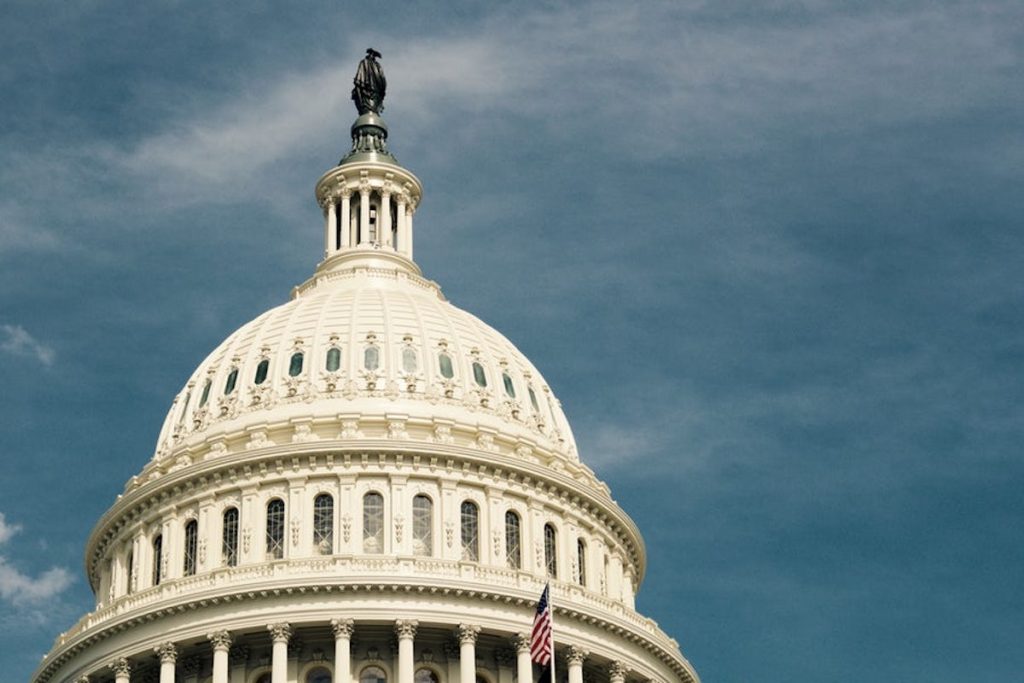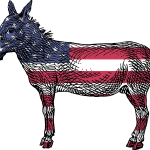Is political liberalism a blessing or a curse? It’s a compelling question for Americans in particular, since our nation represents a kind of original experiment in liberal governance. In a time when the foundations of liberalism seem to be eroding, it’s worth considering where we should stand on the success or failure of that experiment.
Recent discussions here at Public Discourse, particularly regarding Patrick Deneen’s Why Liberalism Failed, have offered opportunities for reflecting on the defects of political liberalism. A useful counterpoint can be found in Jonah Goldberg’s newest book, The Suicide of the West, which offers a far more positive account. As his title suggests, Goldberg too is worried about potentially catastrophic civilizational decline. But, in his view, decline is not simply written into liberalism’s political DNA. It’s an ever-present danger stemming from man’s flawed nature, and from the challenges of preserving the blessings of liberalism from the darker forces of tribalism, corruption, and revanchism.
Goldberg’s argument will be unconvincing to modernity’s more stringent critics. But the book contains valuable lessons even for those who reject his triumphalist view of modernity. He makes some powerful points about the many benefits of liberalism (even or especially to smallish traditional minorities). In my view, taking a more moderate position than either Deneen’s or Goldberg’s can enable us to retain some of modernity’s benefits while working to mitigate its very real weaknesses.
The Death of a Miracle
Start your day with Public Discourse
Sign up and get our daily essays sent straight to your inbox.Goldberg’s book has been so widely reviewed that a cursory summary should be sufficient to ground our discussion. Starting in pre-history and moving through early modern political debates, English exceptionalism, and then the American story, Goldberg recounts how human beings miraculously transcended millennia of violent, hand-to-mouth survival, finally emerging into the bright dawn of a prosperous, civilized, developed modern society. The key to this transformation was a shared willingness to honor a collection of universally applicable rights, rules, and common customs, instead of fighting perpetually to preserve the interests of one’s class or clan.
Embedding these principles in law and politics (first in English common law and then in the American Constitution) enabled our forebears to lay the groundwork for a society that was economically successful, culturally vibrant, and politically free. As Goldberg points out, the American experiment from its inception has succeeded brilliantly, as measured by a number of very concrete indicators: a rapidly growing population, dramatic increases in standards of living, and a level of political stability that many of our ancestors could only envy. Political and economic freedom have brought us unimaginable prosperity, and enabled hundreds of millions of people (often widely divergent in their beliefs, ethnicity, and lifestyle choices) to live together in peace.
Despite these many gains, Goldberg suggests, liberal government will always be in jeopardy, precisely because it is “unnatural.” It demands that we rise above our deeply rooted instinct to join and fight for a particular tribe. Universally applicable laws, political checks and balances, free markets, and formalized bills of rights are all meant to prevent a populist uprising or rapacious elite from undermining those shared commitments that have enabled liberalism to succeed. But they aren’t fail-safe. In our present political moment, warring tribes do seem to be eroding many of the laws, customs, and mores that enable liberalism to yield its many blessings. Unless we can find a way to renew our commitments to this liberal “miracle,” Goldberg fears that we will collapse back into the violent and impoverished lifestyles of our unhappy premodern forebears.
The only way to avoid this fate, he suggests, is by appointing ourselves conscientious guardians of our liberal patrimony. We ought to be grateful for our rich inheritance and not take our blessings for granted. We must keep the (liberal) faith, and raise our children to respect it also. Perhaps most importantly, we should never forget that, if we fail to do this, the alternatives may be very grim indeed.
The Anti-Modern Rejoinder
Goldberg’s defense of classical liberalism is lucid, sincere, and enjoyable to read. But he won’t convince his more committed anti-modern critics. His defense of liberalism would really be more convincing if he showed a greater appreciation for what was lost with the advent of liberalism.
In fairness, Goldberg does appreciate that there are real downsides to the rapid change that comes with economic growth. For workers whose jobs are consumed by more efficient machinery, family farms that buckle under competitive pressure, children living in massively expanding urban slums, and so forth, the “miracle” of modernity may really have been something of a nightmare. Goldberg has sympathy for these suffering individuals. He has far less sympathy for principled anti-modern critics, whom he generally views as nostalgic or tribal, yearning for an escape from freedoms and responsibilities that are too difficult for them to bear. He appreciates that, in practice, modernity has some undesirable consequences, but he never seriously considers that contemporary liberals may have lost sight of certain truths that our premodern forebears grasped more fully.
In a remarkable passage early in the book, Goldberg (summarizing the British-Czech philosopher Ernest Gellner) explains that
in the transition to modernity, we lost something that defined how humans saw the world until three hundred years ago. We used to layer meaning atop meaning, horizontally, like one sheet of tinted film atop another. Utility and sacredness, habit and ritual, convenience and tradition, metaphor and fact—each lay atop one another, producing a single lens through which we viewed the world. The scientific revolution changed that.
As Goldberg sees it, modern people have peeled apart the layers of the older, more organic worldview, instead learning to compartmentalize different aspects of their lives into “distinct silos.” This shift has been enormously helpful from the standpoint of curing diseases, building new machines, developing more inclusive institutions, and quelling religious conflict. On an experiential level, though, it’s uncomfortable for us to be so fragmented. According to Goldberg, that discomfort is what gives rise to the nostalgia and revanchism that we see in anti-modern critiques. “We miss the unity of the pre-Enlightenment mind,” he explains. “And so we yearn to restore meaning where it isn’t.”
It’s a clarifying moment in the book.
Are traditionalists exclusively looking to restore meaning that isn’t? Shouldn’t we at least entertain the possibility that the pre-modern “layering” Gellner described may have enabled our forebears to find real meaning and truth in places where contemporary people never manage to look (perhaps because we’re breathlessly dashing to and fro in our disorganized cluster of “silos”)? Isn’t it possible that the discomfort of modern fragmentation speaks to something deeper than just a tribal desire to dominate, perhaps pointing toward real deficiencies in modern life as such?
It’s characteristic of Goldberg’s avowedly non-transcendent worldview to read premodern customs and creeds just as psychological coping mechanisms, fundamentally rooted in an evolution-driven instinct for survival. Those of us who are less committed to the superiority of Enlightenment thinking may see ample evidence to the contrary in the wisdom and depth of ancient and medieval thinkers—and in the confusion and despair that seem so ubiquitous in modern society.
As an illustrative example, consider the collapse of marriage. Reams of sociological evidence confirm that men and women alike are better off in secure marriages, and children in their natal families. Nevertheless, the people who most desperately need these advantages (those who are poor and socially disadvantaged) often find it enormously difficult to get and stay married. Even progressive liberals are starting to notice that marriage is becoming a “luxury good,” which assuredly has not been the case in every historical period.
Why is this happening? Is it possible that a utilitarian, convenient, “silo-bound” approach to marriage just doesn’t offer a sufficiently strong foundation for a lasting marital relationship (especially for couples that are likely to face some daunting challenges in their early adult lives)? Might the additional “layering” of sacredness, ritual, and tradition help to fortify that bond? Available evidence suggests that it does, which at least raises the possibility that the multi-layered (premodern?) view of marriage may capture certain truths about the marital bond that are elusive to the fragmented modern mind. Writing off all such interpretations as mere “superstition” seems more like modern prejudice than enlightenment. And of course, marriage is just one example; there are many other perverse modern practices that arguably seemed off-limits to our ancestors precisely because their organic, “layered” perspective enabled them to connect certain dots that we tend to see as disparate.
Liberalism untethers government from particular class structures, group interests, and religious dogma. That untethering can spur growth and innovation, and it can enable diverse populations to live together without brutal repression or violence. But it can also erode healthy customs and traditions, create destructive and parasitic markets, and leave millions struggling to find meaning amid material plenty. Whether we are happier than our ancestors is impossible to say. But certainly, the gains of liberal government have come at a cost.
Towards a Moderate and Conditional Liberalism
Must we choose between Goldberg’s liberal cheerleading and Deneen’s denunciations? There’s really no reason we should. If we look past the triumphalist or fatalist trappings of these two narratives, we may actually find a fairly commonsensical middle ground.
Liberalism may not be the pinnacle of human achievement, but in our own time, it’s hard to see a viable alternative. Premodern life may not have been as dark as Goldberg implies, but it’s hard to deny that contemporary efforts at illiberal governance have a very grim track record indeed.
Both narratives (the triumphalist and the fatalist) probably also underplay the extent to which liberalizing trends have been driven not by moral enlightenment or decline but by practical necessity. The organic, “layered” worldview (as described by Gellner) could plausibly provide foundational principles for an entire society when that “society” consisted in an ancient city-state or a medieval hamlet. Modern states must grapple with enormous and very diverse populations, markets spanning the globe, and technology advancing with breathtaking speed. No human has the capacity to fit all of this neatly into one coherent, layered worldview. It’s just too complicated.
Instead of regarding liberalism as either a triumph or a fool’s errand, we might view it as more of a pragmatic compromise. We all agree to play by a somewhat formalistic set of rules, not because we’re convinced that these are maximally fair, wise, or enlightened, but rather because they provide some structure within which a shared life becomes possible. There are losses (especially in social cohesion) and gains (especially in material prosperity), but ultimately we should do what we can to uphold the liberal order simply because we recognize that it is (in this time and this place) the strongest available bulwark against brutal repression and grave injustice. At the same time, we should be mindful of liberalism’s inherent weaknesses, working assiduously to cultivate cultures and communities that can provide the moral structure and depth of meaning that liberalism notably lacks.
When it comes to liberalism, Goldberg is a true believer. I myself am not. I have even self-identified as a penitential liberal, meaning that I accept the necessity of laboring in the culturally desiccated fields of modernity not because the landscape delights me, but rather because this appears to be the work God has laid out for modern Christians. Coming from that standpoint, The Suicide of the West was memorable for its poignant reminders that we should never allow discouragement to swamp our sense of gratitude.
As Americans, liberalism is our patrimony. More than any other people in the history of the world, we can truly say that we are here (in very significant numbers!) because of its great successes. Even recognizing the drawbacks, we should maintain a proper respect for that heritage. Modern life may be replete with trials, but in myriad ways we truly are the children of fortune, with innumerable opportunities to pursue any goals that we deem worthy. Billions of our fellow humans (historically and in the world today) are far less fortunate than we.
Is liberalism a blessing, or a curse? Perhaps it’s both. Out of respect for our forefathers, though, let’s count the blessings first.














